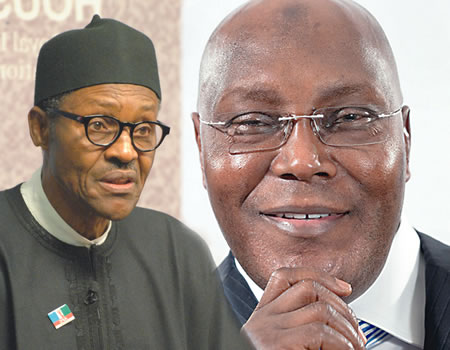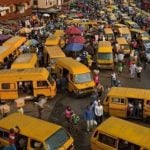SINCE the party primaries that produced the incumbent President Muhammadu Buhari as the Presidential flag-bearer of the All Progressives Congress (APC) at the Eagle Square in Abuja on October 6, 2018 and former vice president of Nigeria, Alhaji Atiku Abubakar as the flag-bearer of the Peoples Democratic Party (PDP) at the Adokiye Amiesimaka Stadium in Port Harcourt a day after, I have had a heave of relief and concluded that it is going to be between Buhari and Atiku on February 16, 2019.
Two issues of great concern if the choices of the APC and PDP were otherwise would have been how to manage religious crisis on one hand and the regional wrangling on the other hand. There is no hiding the truth that, barely three months to the Presidential poll, the political situation in Nigeria would have tensed up if APC and PDP had featured flag-bearers of the rival religions in Nigeria.
Being the situation on ground, Buhari and Atiku have been hoping to capitalize on the presumed weaknesses of each other to campaign and convince Nigerians of their credibility and chances to lead Nigeria. But I am very surprised what manner of campaigns both parties and even others are putting up. It is like the social media have become the campaign ground for Nigerian politicians. This is quite unlike before and credit must be given to Buhari on this new trend. The electorates must not be induced to vote against their consciences. Vote buying must be stopped. Nigerians must not collect peanuts from politicians for a whole four-year mandate. I have never witnessed in Nigeria that, three months to general elections, free monies are not being wasted on trivialities for inducements of the people or impositions of candidates.
Buhari has rolled out his targets for Nigeria for the next four years entitled “Next Level”. The Buhari manifesto has been heavily criticized by the opposition. Atiku has rolled out his own four-point agenda manifesto/policy document which promotes restructuring, privatization, job creation, infrastructure development and poverty eradication. There was an “anointed and calculated” silence on fight against corruption. Added to this, a lot of Nigerians are, however, worried about the two controversial issues of restructuring and privatization. Atiku has fixed particular interest in the selling of national assets, like his former boss Olusegun Obasanjo did.
With all that I have tried to put up, Buhari and Atiku are similar and dissimilar in some aspects. Both are Muslims by religion, Fulani by tribe, northern by region, advanced by age, loved by different sections of Nigeria, have feelings for Nigeria and hopeful of victory in the February 2019 presidential contest. Yet, it is not far from the truth that Buhari has his weaknesses as a human being just as Atiku has.
Nigerians are posed to choose between Buhari and Atiku in 2019. Buhari is apparently depending on his popularity amongst the Nigerian masses, Atiku is out-rightly depending on some old political demagogues. Will 2019 be another victory for the Nigerian masses or a return to the past of political brigandage?
- Muhammad Ajah,
Abuja.






